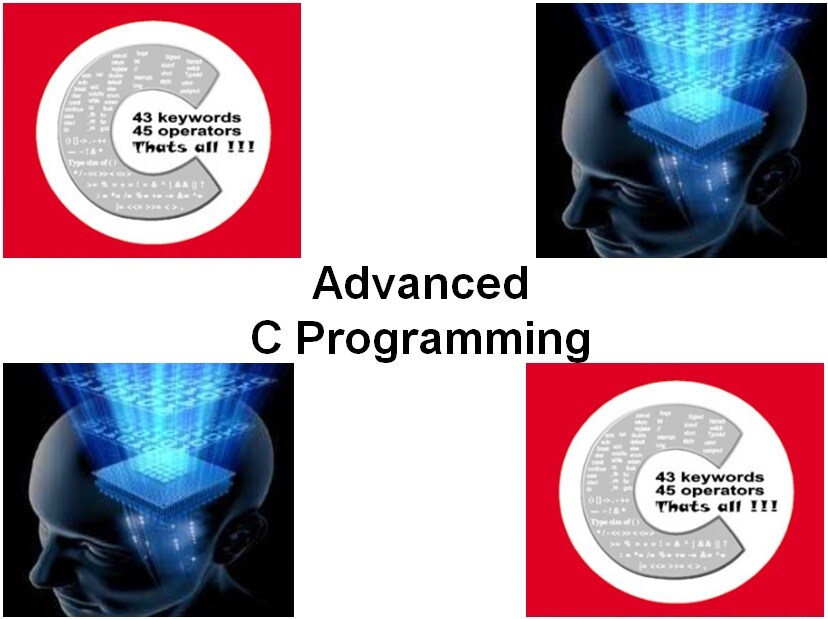-
Learning by doing
-
Trainers with practical experience
-
Classroom training
-
Detailed course material
-
Clear content description
-
Tailormade content possible
-
Training that proceeds
-
Small groups
In the course Advanced C Programming the more advanced aspects of C programming like the use of modules and interfaces and object oriented programming in C using encapsulation are discussed.
Potential dangers of certain constructs in C are highlighted such as C macros, evaluation order and the use of globals.
Attention is paid to pointer techniques and the use of pointers to functions is discussed.
The most common dynamic data structures such as arrays, linked lists, hash tables and trees and their implementation in C are addressed in detail.
Also attention is paid to optimization techniques regarding speed and memory.
More advanced functions of the C library such as setjmp, longjmp, signals, bsearch, and qsort etc. are also on the course program.
Finally bit manipulation and advanced string handling and parsing are discussed.
The course Advanced C Programming is intended for C developers who want to understand and use the more advanced features and techniques of the C language.
To join this course knowledge of the basic concepts of programming in C and experience in C is required.
The concepts are treated on the basis of presentation slides. Illustrative demo programs are used to clarify the treated concepts. There is ample opportunity to practice and theory and practice is interspersed.
Participants receive an official certificate Advanced C Programming after successful completion of the course.

Module 1 : C Pitfalls |
Module 2 : Object Orientation in C |
Module 3 : Pointers and Arrays |
|
C Standards Pitfalls C Language Write Clean Code Good Programming Style Rules for Functions Deep versus Flat Code Evaluation Order Avoid Macros Without const Using const Code Reuse Avoid Globals Pre and Post Conditions Invariants Code Smells |
Object Orientation Classes and Objects Example Class and Objects Object Orientation in C Simple Objects in C C versus C++ Class Constructor in C Member Functions in C Encapsulation in C Public Function Members in C Inheritance Extending C++ Classes Virtual Functions Virtual Function Table Polymorphism |
Pointers Revisited Pointer Arithmetic Pointers and Arrays Function Pointers Optional Ampersand Variable Length Arguments Varargs Example Array Initialization Array Traversal Arrays of Structs Arrays versus Pointers Multidimensional Arrays Indices in 3d Array Dynamic Arrays Ragged Arrays |
Module 4 : Data Structures in C |
Module 5 : Bit Manipulation |
Module 6 : C Standard Library |
|
Dynamic Data Structures Singly Linked Lists Linked List Element Type Creating List Elements Doubly Linked Lists Stacks and Queues Hash Tables Load Factor Hash Functions Trees Trees Traversal |
Bit Manipulation Bitwise Operators Bitwise AND Bitwise OR Bitwise XOR Bitwise NOT Bitshift Operators Bit Shifting Bitwise Assignment Operators Bit Rotation BitFlag Functions |
What are Signals? ANSI C-Signal Types Handling Signals SIGABRT, SEGV, SEGFPE setjmp and longjmp Coroutines atexit Function assert Function perror Function Raising Signals Alarm Signal |
Module 7 : String Handling |
||
|
Looking for Characters Looking for Substrings Count Matching Characters Looking for Character Sets String Comparison String Tokenizing Converting Strings to Numbers Handling Conversion Errors qsort and Bsearch Advanced String Handling |
